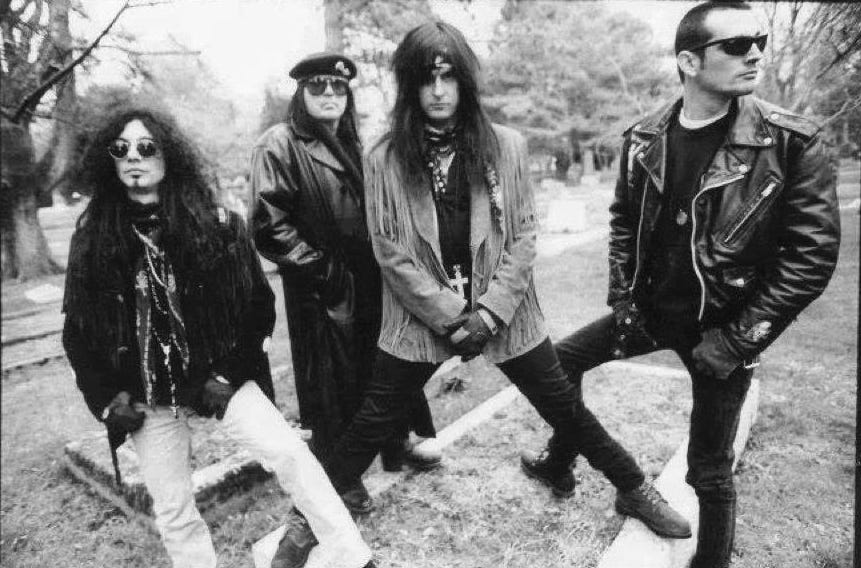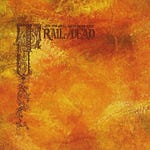By 1994, Mötley Crüe stood at a crossroads. The kings of 1980s glam metal — purveyors of sex, drugs, and stadium-sized rock anthems — suddenly found themselves out of step with a shifting musical landscape. Grunge had taken over, glam was out, and even the most decadent rock stars couldn’t escape the winds of change. But instead of going quietly into the night, Mötley Crüe did the unexpected: they reinvented themselves with a bold, self-titled album that remains one of the most divisive records of the decade.
This wasn’t a rehash of Dr. Feelgood or Girls, Girls, Girls. It wasn’t sleazy glam rock or party anthems built for strip clubs and whiskey-drenched nights. Instead, Mötley Crüe (1994) was a muscular, darker, and far more introspective record — one that traded the band’s signature flash for grit and gravity. It was a statement album, but it came at a cost.
A New Voice, A New Direction
The first shock came with the departure of Vince Neil, the voice of the Crüe’s most iconic hits. His replacement, John Corabi, was a revelation. Unlike Neil’s high-pitched wail, Corabi’s voice was a deep, soulful growl — more suited for the raw, heavy sound the band was chasing. Corabi wasn’t just a singer; he was also a guitarist, and his presence allowed Mick Mars to break free creatively. The result? A richer, more layered sound that leaned into hard rock and blues influences, with hints of the heavier, sludgier tones of bands like Alice in Chains.
But this wasn’t a grunge album. Despite lazy comparisons over the years, Mötley Crüe wasn’t the band’s attempt to ride the Seattle wave. Tracks like “Hooligan’s Holiday” and “Smoke the Sky” still carried the swagger of the Crüe’s past, but the riffs were chunkier, the lyrics more introspective, and the melodies less concerned with radio-friendly hooks. It was Mötley Crüe growing up — whether fans liked it or not.
Nikki Sixx’s Last Artistic Stand
For Mötley Crüe, their 1994 self-titled album was more than just a stylistic pivot — it was a declaration of artistic intent. With Vince Neil out of the picture and John Corabi stepping in, the band’s songwriting process shifted into more collaborative territory. Nikki Sixx, who had been the driving creative force behind the band’s biggest hits, shared writing duties with Corabi, Mick Mars, and Tommy Lee. The result was a darker, more mature sound that reflected a band eager to evolve beyond their glam metal roots.
Tracks like “Misunderstood” and “Uncle Jack” tackled themes far removed from the debauched party anthems of the Crüe’s past. Family trauma, addiction, and personal demons took center stage, with Corabi’s grittier vocal delivery adding emotional weight. The interplay between Corabi’s rhythm guitar and Mars’ lead work gave the album a rich, layered sound, allowing the band to explore new musical textures.
But despite the artistic ambition, the album’s failure to resonate commercially marked a turning point for the band. Feeling burned by the lack of success, the members reverted to a more business-focused approach in the years that followed. Sixx, Mars, Lee, and Neil would later admit that after the self-titled record, subsequent albums leaned more heavily on nostalgia and commercial viability than artistic risk-taking.
Misunderstood and Underappreciated
The 1994 album’s lack of commercial success had less to do with its quality and more to do with timing. Fans weren’t ready to embrace a version of Mötley Crüe that didn’t include Vince Neil, and the heavier, darker sound alienated those who expected the glossy sheen of Dr. Feelgood. Critics dismissed it as a failed attempt to chase grunge trends, but that assessment has never been fair.
Songs like “Hooligan’s Holiday” and “Poison Apples” still hold up as some of the band’s strongest material. The interplay between Corabi and Mars gave the music a depth and complexity that was missing from their earlier work, and the album’s production (courtesy of Bob Rock) remains crisp and powerful.
Even drummer Tommy Lee, who famously loves a good party, sounded reinvigorated on this record. His drumming on tracks like “Til Death Do Us Part” and “Hammered” hits harder and with more precision than on any Crüe album before or since. The entire band sounds locked in — determined to prove something.
Ahead of Its Time, or Out of Its Time?
With hindsight, Mötley Crüe (1994) feels like the band’s most daring and authentic moment. Stripped of the makeup and bravado, they delivered an album that was raw, honest, and unflinching. It wasn’t what fans wanted in the mid-‘90s, but it’s what they needed.
The album never got the recognition it deserved. In the U.S., it failed to make a significant impact on the charts. But in Europe and Japan, it found a more receptive audience, where fans were less tied to the band’s glam metal image.
Over time, the record has gained a cult following among diehard fans and rock historians alike. It stands as a testament to what Mötley Crüe could have been if they had continued down this more artistic path. It’s also a reminder that the music industry, especially in the ‘90s, was unforgiving to bands who dared to step out of their lanes.
Legacy: The Album That Could Have Been a Turning Point
In the end, Mötley Crüe (1994) wasn’t a failure — it was a missed opportunity. The band’s willingness to take risks and evolve creatively should have been celebrated, but instead, it was punished. Corabi was out by 1997, and Vince Neil was back in, bringing the band full circle to where they started.
But for those who love this record, it remains a hidden gem in the band’s catalog. It’s not just another album — it’s a story of reinvention, ambition, and, ultimately, disappointment. It’s a record that challenges fans to see beyond the image and embrace the music for what it truly is: Mötley Crüe at their most real.
So if you haven’t dusted off Mötley Crüe (1994) in a while — or if you’ve never given it a fair shot — now’s the time. You might just discover the band’s most honest, underrated work.
Because sometimes, the most interesting stories in rock and roll aren’t the ones about success. They’re the ones about risk, failure, and redemption.
Songs in this Episode:
Intro - Hooligan’s Holiday
23:39 - Uncle Jack
30:17 - Poison Apples
33:44 - Misunderstood
41:41 - Welcome to the Numb
Outro - Hammered
















Share this post